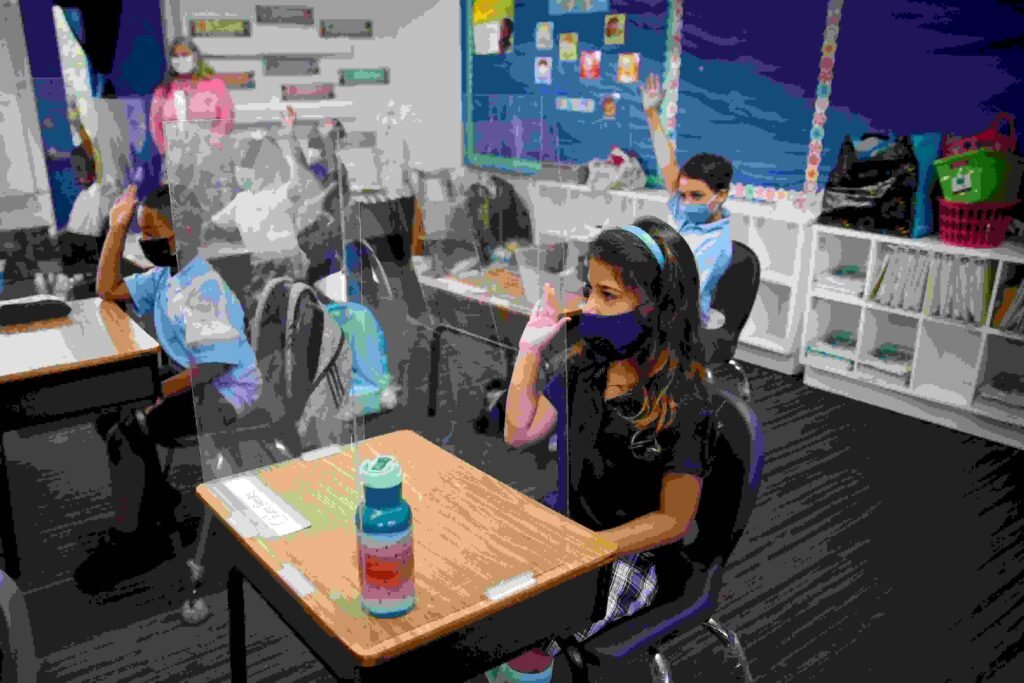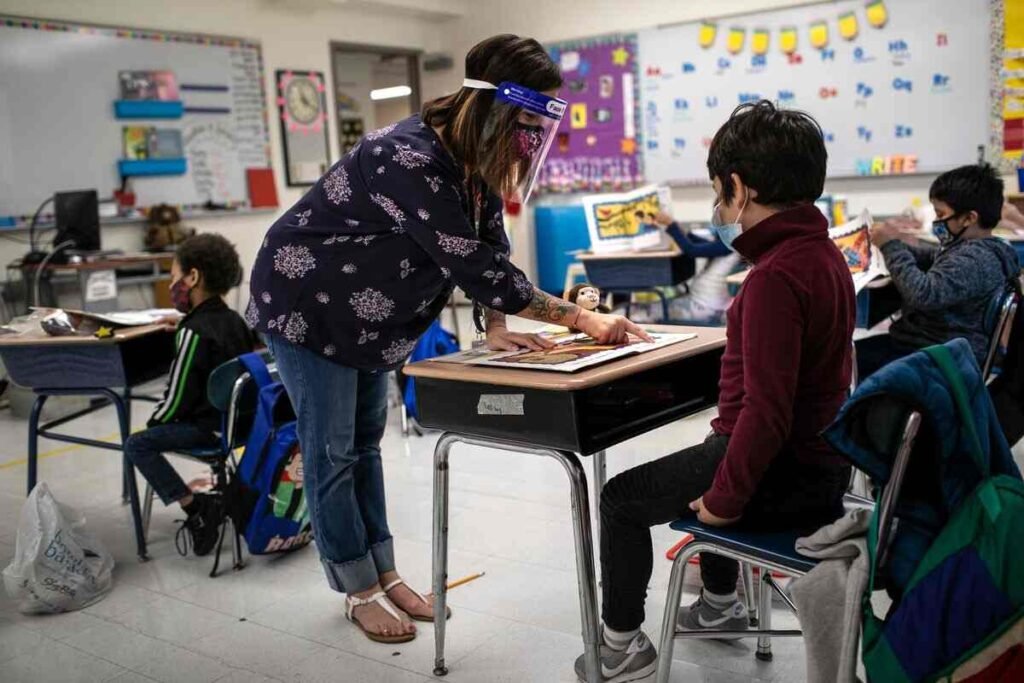A recent report has shed light on the difficulties American schools are facing, particularly among what is referred to as the “COVID generation.” Published by the Center on Reinventing Public Education (CRPE), an organization affiliated with Arizona State University, this report raises concerns about the continued academic struggles of older students in the aftermath of the pandemic.
The report notes that “Three years after the pandemic began, COVID-19 is still impacting learning, albeit in more subtle and less apparent ways.” It underscores that despite students’ return to school, the situation is far from being back to normal.

The research paints a troubling picture, highlighting declining academic performance, increasing chronic absenteeism, and ongoing mental health challenges among American students. For instance, the report points out that the average ACT score has reached a 30-year low. Furthermore, data from the most recent National Assessment of Educational Progress (NAEP) reveals that math performance among the average 13-year-old is as low as it was in 1990.
The report cites data indicating that nearly three-quarters of schools have seen an increase in chronic absenteeism in the post-pandemic years, as reported by the National Center for Education Statistics. It also references a Gallup poll in which a fifth of students in 2023 gave their schools poor ratings in terms of mental health support.

Despite the rising high school graduation rates, college professors have expressed concerns about students arriving at higher education institutions unprepared. These challenges underscore the need for a reevaluation of the educational approach.
One significant concern raised by the CRPE is the nationwide shortage of tutoring services, contributing to ongoing learning setbacks. Shockingly, only 2% of American parents reported that their children receive high-quality tutoring at school, despite the substantial federal funding allocated for this purpose.
The report deems this shortage a “massive missed opportunity” and suggests that more effective utilization of available resources is imperative. Recent research has also indicated a decline in both college readiness and overall K-12 enrollment since the onset of the pandemic.

The release of this report coincided with the White House’s announcement of targeted reforms aimed at addressing pandemic-related learning challenges. These measures include $50 million in new federal grant funding to enhance reading and math outcomes in states. Education Secretary Miguel Cardona highlighted President Joe Biden’s initiative, launched last summer, to bring a quarter-million new tutors into schools by 2025, with this goal nearly achieved.
However, despite these efforts, the report acknowledges that the widened achievement gaps observed in recent years have yet to show substantial improvement, particularly with the resurgence of the virus affecting classrooms this fall.
All in all
This report highlights the ongoing struggles faced by American schools, particularly among older students, termed the “COVID generation.” Despite students’ return to school, the impact of the pandemic continues, affecting academic performance, absenteeism, and mental health. The report emphasizes the need for targeted reforms and increased support to address these challenges in the education system.
The journey through the educational challenges faced by the “COVID generation” has been a complex and evolving one. As we reflect on the impact of the pandemic on academic performance, absenteeism, and mental health among American students, it becomes clear that the path forward requires concerted efforts and innovative solutions.
The findings presented in this report serve as a call to action for policymakers, educators, and stakeholders at all levels of the education system. The data underscores the urgency of addressing these issues and provides valuable insights into the areas that require immediate attention.
While the road ahead may be challenging, it is not insurmountable. By focusing on targeted reforms, increasing support systems, and prioritizing the well-being of students, we can work together to mitigate the long-term effects of the pandemic on education. The “COVID generation” deserves a brighter future, and with collective effort, we can help them regain their academic footing and thrive in the post-pandemic world.
Read Also : https://truereviewmagazine.com/










